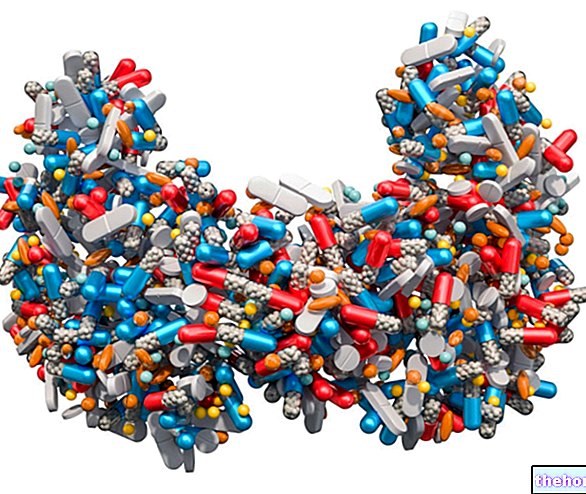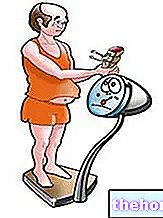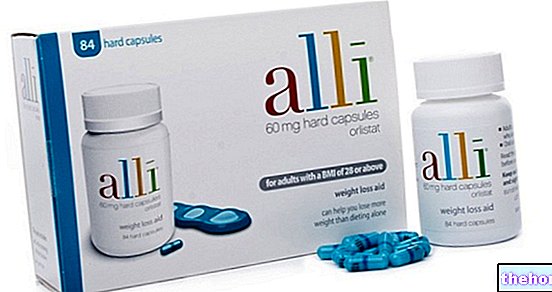Related articles: when to drink; how much and when to drink
Most diets and those who prescribe them emphasize the importance of water in a healthy diet.
Does water make you lose weight?
The answer is clearly negative: if it were positive, we would burn additional calories with every glass of water sipped. This, of course, does not happen, since on the one hand water does not provide energy, on the other it has no intrinsic ability to increase the body's metabolism, as nerve foods such as tea and coffee do.
Drinking excessive amounts of water in hopes of losing weight can even be dangerous to your health. Forcing yourself to drink more during meals, for example, "extinguishes the fire with which food burns" (slows down and impairs digestion by excessively diluting digestive juices). The water, once absorbed in the intestine, ends up in the blood, regulating its volume; if we drink too much, therefore, the volume of the plasma increases and with it the arterial pressure. Finally, the excessive dilution of electrolytes, especially sodium (keep in mind the people who love the waters who are poor), it can be very dangerous and even lethal in extreme cases.
Does drinking water help you lose weight?
In this case the answer can become positive based on some considerations. Let's see them in detail.
If water is drunk instead of alcohol, fruit juices, sweetened drinks, etc., the lower calorie intake can only help with weight loss.
In people who drink little, and they are very many, it can happen that a need for water is confused with a need for food; it seems nonsense but there is some truth, since foods contain a certain percentage of water (close to 80-90% in most vegetables and fresh fruit).
Drinking cold water, in theory, can help you lose a few more calories, but it is obviously a very dangerous and not recommended practice.
Drinking one or two glasses of water before meals helps to stimulate the sense of satiety by decreasing the amount of food ingested.
Does drinking a little make you fat?
Also in this case there may be some truth. We know, for example, that adipose tissue is very poor in water, which is abundant in muscle; not surprisingly, obese subjects have a lower percentage of body water than thin ones. Even the synthesis of glycogen, unlike lipogenesis, requires considerable quantities of water, since each gram of this polysaccharide binds almost 3 grams to itself.
In athletes engaged in endurance sports, the lack of water favors muscle catabolism, with inevitable decrease in metabolism (cortisol, a stress hormone, has antidiuretic activity and its secretion increases in lack of water; at the same time, dehydration reduces the testosterone secretion) *.
Furthermore, a correct water intake favors the elimination of toxins from the organism, which by virtue of their lipophilicity tend to accumulate in the adipose tissue. An excess of toxins in circulation due to reduced water intake could therefore have a fattening effect, as well as being decidedly unhealthy.
Even if our body has extremely effective mechanisms to regulate water losses as a function of water intake, drinking in the right quantities is very important. More than doing it in the hope of losing weight, therefore, it makes more sense to drink to feel good and avoid all the unpleasant consequences of dehydration.
* (Judelson, A. et al. Effect of hydration state on resistance exercise-induced endocrine markers of anabolism, catabolism, and metabolism. Journal of Applied Physiology. July 10, 2008).




























